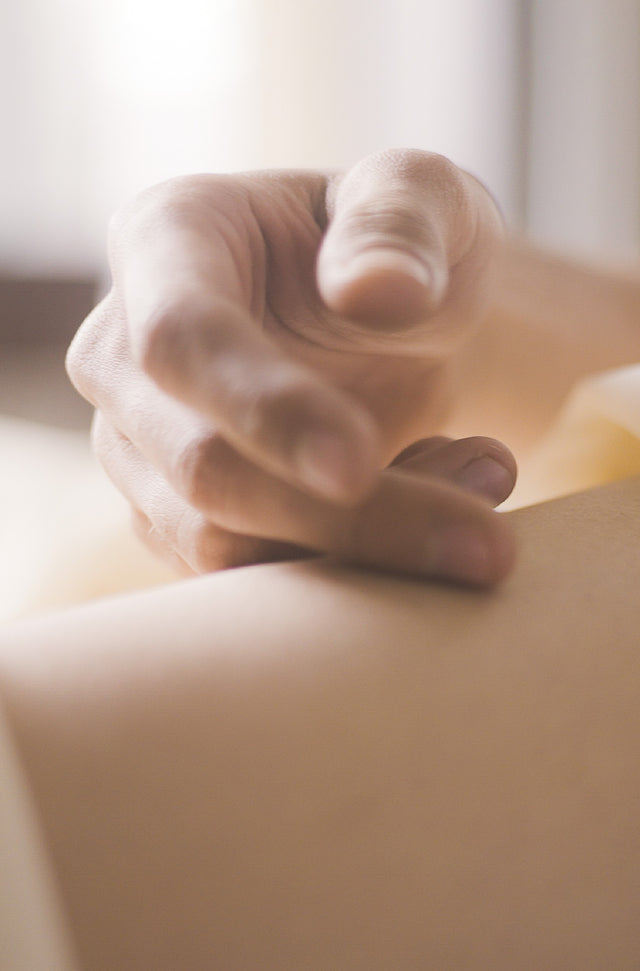Shedding Light On The Silent Struggle Of Anorgasmia In Men
Male orgasm is often portrayed as the pinnacle of sexual experience, but what happens when that experience becomes elusive or impossible to achieve?
Most people assume that sexual difficulties are a woman’s problem. But that’s simply not true. Men suffer from sexual difficulties just as women do.” - Dr. Harry Fisch
Male orgasm is a complex process that involves several physical and psychological factors. For some men, achieving orgasm can be difficult or impossible, a condition known as anorgasmia. Despite being a common problem, anorgasmia in men is not discussed as openly as it should be. There are many myths and misconceptions surrounding this condition that prevent men from seeking help and support.
In this blog, we will explore the common myths and misconceptions about anorgasmia in men and provide insights into the causes and treatment options available.
What is Anorgasmia in Men?
Anorgasmia is a condition in which a man is unable to achieve orgasm, even after prolonged sexual stimulation.
This condition is also sometimes referred to as male orgasmic disorder.
There are two types of anorgasmia:
1. Primary Anorgasmia
2. Secondary Anorgasmia
Primary anorgasmia is a rare condition in which a man has never been able to achieve orgasm, even with sufficient sexual stimulation.
Secondary anorgasmia is more common and occurs when a man who has previously been able to achieve orgasm is no longer able to do so.
Causes of Anorgasmia in Men
There are several possible causes of anorgasmia in men, including:
There are many causes of anorgasmia in men, ranging from physical to psychological factors.
Physical Causes:
Certain medical conditions such as diabetes, multiple sclerosis, and spinal cord injuries can affect the nerves and blood vessels that are involved in the orgasm process.
Medications:
Certain medications such as antidepressants, blood pressure medications, and some prostate medications can interfere with the orgasm process.
Lifestyle Factors:
Poor diet, lack of exercise, and excessive alcohol or drug use can also contribute to anorgasmia.
Psychological Causes:
Anxiety, depression, stress, and relationship issues can all contribute to anorgasmia in men.
Myths and Misconceptions about Anorgasmia in Men
Myth 1
Anorgasmia is a rare condition that only affects a few men
Reality:
Anorgasmia is a common problem that affects many men. It is estimated that up to 15% of men have difficulty achieving orgasm.
Myth 2
Anorgasmia is caused by erectile dysfunction
Reality:
While erectile dysfunction and anorgasmia can occur together, they are two separate conditions. Erectile dysfunction refers to the inability to achieve or maintain an erection, while anorgasmia refers to the inability to achieve orgasm.
Myth 3
Anorgasmia is caused by performance anxiety
Reality:
Performance anxiety can contribute to anorgasmia, but it is not always the primary cause. Anorgasmia can be caused by a variety of physical and psychological factors.
Myth 4
Anorgasmia is a sign of a weak sex drive
Reality:
Anorgasmia is not related to sex drive or desire. A man with anorgasmia may have a normal or even high sex drive but still be unable to achieve orgasm.
Treatment Options for Anorgasmia
Treatment for anorgasmia in men will depend on the underlying cause of the condition.
In some cases, treating underlying medical conditions, such as nerve damage or hormonal imbalances, may be necessary. However, in many cases, addressing underlying psychological or emotional factors may be an important part of treatment. This may involve working with a therapist to address issues such as anxiety or depression.
In addition, there are a few other treatment options that may be helpful in managing anorgasmia in men. These may include:
1. Sensate focus therapy
This type of therapy involves focusing on physical sensations during sexual activity, rather than the goal of orgasm. This can help to reduce anxiety and pressure, which may be contributing to the problem.
2. Medications
Certain medications, such as antidepressants, may be helpful in managing anorgasmia in men. These medications may help to reduce anxiety or other emotional factors that may be contributing to the problem.
3. Sex therapy
Working with a sex therapist can be helpful in addressing any psychological or emotional aspect related to this.
Male orgasm now with ease!
Anorgasmia is a common condition that affects many men, yet it remains shrouded in myths and misconceptions.
It's important to remember that anorgasmia is not a reflection of one's sexual prowess or masculinity, and seeking help and support is crucial in managing this condition.
With the right treatment, men with anorgasmia can improve their sexual experiences and overall quality of life.
Atease is taking it in its stride to shed light on this silent struggle and promote open and honest conversations about sexual health.
We have a range of sexual wellness products for men, do check them out.
You may want to learn more about such topics. If you do, Check out the Your Guide section on the website.
Stay connected with us on Instagram for updates on sexual health. Tap here to follow now.


